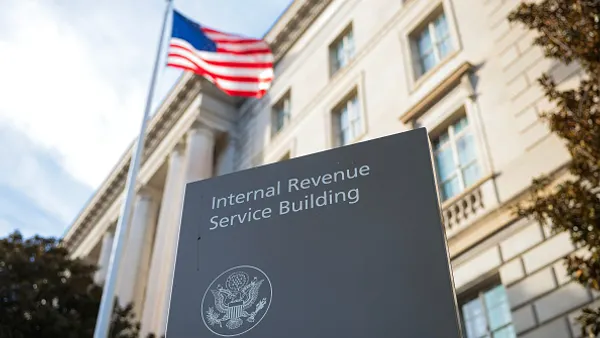Dive Brief:
- The Public Company Accounting Oversight Board announced three separate settled disciplinary orders against Netherlands member firms of Deloitte, Ernst & Young and PricewaterhouseCoopers, sanctioning them with penalties totaling $8.5 million for violating the board’s rules and quality control standards related to their internal training programs, according to a Wednesday press release.
- From 2018 to 2022 hundreds of the firms’ professionals, including partners, improperly shared answers to tests for mandatory firm training courses on such topics as professional independence, audit requirements and professional integrity, the PCAOB release states.
- Without admitting or denying the findings, Deloitte Netherlands and PwC Netherlands each agreed to pay a $3 million civil penalty and EY Netherlands agreed to pay $2.5 million. The fines would have been “significantly larger” if the firms had not been as cooperative, according to the release.
Dive Insight:
The U.S. audit watchdog’s latest exam-cheating sanctions come as the board’s broader future is uncertain: Republican lawmakers have proposed to eliminate the Enron-era body and fold its duties into the Securities and Exchange Commission.
The PCAOB was handed a legislative lifeline last week when the Senate Parliamentarian found that the provision in President Donald Trump’s massive tax and spending bill wasn’t compliant with the so-called Byrd rule. Still, the Trump administration’s push for deregulation could drive other means of curbing the board’s powers, CFO Dive previously reported.
The fines are smaller than the record $25 million penalty imposed last year by the board when it sanctioned KPMG Netherlands and its former head of assurance in connection with cheating and sharing of answers on the firm’s internal training exams during a five-year period. At the time, the PCAOB noted that the widespread cheating on the training courses was enabled by the firm, which took “virtually no steps to investigate” the misconduct which was ultimately brought forward by a whistleblower.
With the clock potentially ticking with regard to the board, Robert Pawlewicz Ph.D., an assistant professor of accounting at the University of Richmond’s Robins School of Business, said the PCAOB may be willing to settle for less to have these violations closed and made public before the SEC makes any changes. It’s possible “the PCAOB was incentivized to wrap up the enforcements,” he said.
He also said that the board, acting alongside the newly appointed SEC administration, isn’t likely to pursue such actions that aren’t audit-related which can be criticized by some as regulatory overreach, although Pawlewicz doesn’t agree with that view. “With a new Board, I would not expect to hear about more of these violations,” Pawlewicz said in an email.
A PCAOB spokesperson declined to comment on the matter.
In a statement emailed to CFO Dive, EY Netherlands said integrity is a core value and that it takes such matters seriously, noting that it has fully cooperated with PCAOB.
“We have taken extensive actions to reinforce our culture of compliance, ethics, and integrity, as well as further measures to address the issues identified through our investigation. With this settlement, we can bring these matters with the PCAOB to a conclusion and will work with local regulator AFM [Netherlands Authority for the Financial Markets] to ensure the long-term effectiveness of the measures we have taken,” the statement from EY said.
In a press release PwC Netherlands said it has taken steps to remediate the problem and that the settlement coincides with its internal investigation.
“This behaviour is contrary to our values, and we have imposed a range of sanctions on those found to be involved, including written warnings, financial penalties, demotions and exits from the firm,” the release states.
Deloitte did not respond immediately to a request for comment.















